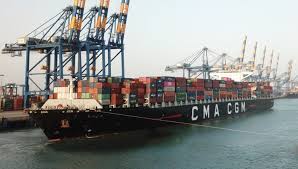
In the realm of cargo aviation, Noida International Airport stands as a beacon of innovation and efficiency, poised to transform northern India’s logistics landscape. With a multi-modal cargo hub (MMCH) under the aegis of Air India SATS, Noida Airport offers a distinct set of advantages.
Spanning 80 acres, this cargo hub serves as a vital nexus for trade in the region, offering quick, convenient, and intermodal connectivity. It caters to the burgeoning industrial clusters in the National Capital Region (NCR) and Uttar Pradesh, effectively becoming Northern India’s cargo gateway.
The MMCH boasts an Integrated Cargo Terminal (ICT) complemented by an Integrated Warehousing and Logistics Zone (IWLZ), featuring cutting-edge amenities. It includes dedicated freighter aprons, warehouse zones for forwarders, airside access for built-up units (BUPs), and a versatile logistics hub accommodating road-to-road, road-to-air, and air-to-road movements.
In line with our commitment to innovation, Noida International Airport, in partnership with Air India SATS, envisions ‘Smart and Connected’ cargo facilities. Leveraging IoT, AI, and ML technologies, we are set to implement lidar-based cargo measurement, vision-based package tracking, SATS Tracer for real-time shipment monitoring, and a cargo app for mobile-based flight and shipment status updates.
Furthermore, the upcoming cool port at MMCH will integrate Air India SATS’ Pharma Tag solution, ensuring end-to-end temperature tracking for sensitive pharmaceutical shipments. Our infrastructure prioritizes efficiency, scalability, and seamless processes, underpinned by a common digital framework.
In sum, Noida International Airport’s MMCH is more than an emerging cargo hub; it represents a pivotal driver of logistics growth in the region. Our commitment to technology, connectivity, and innovation ensures that Noida Airport is well-poised to meet the evolving demands of the cargo industry while contributing significantly to the development of Northern India.
Cargo infrastructure
Investments and developments at Noida International Airport (NIA) are poised to meet the surging demand for air cargo services and bolster global trade. NIA’s multi-modal cargo hub integrates a digital solution, the E-Freight system, an IATA-recommended standard for paperless cargo clearance and support.
The addition of an Integrated Warehousing and Logistics Zone grants e-commerce and freight forwarders the space they need to thrive. NIA focuses on just-in-time processes, real-time digital integration, improved Minimum Connection Time (MCT), and reduced Turnaround Time (TAT) for aircraft and trucks. A dedicated truck access road eliminates traffic restrictions, while ample space accommodates the expansion of cargo facilities.
These initiatives make NIA a hub for efficient cargo and e-commerce operations. As the industry evolves, NIA encourages cargo operators, airlines, CHAs, freight forwarders, and trucking operators to embrace innovation, setting effective models for the future of air cargo.
Strategic advantage
Noida International Airport strategically harnesses its proximity to major industrial and commercial centres, becoming a pivotal hub for efficient cargo transportation. This advantageous location facilitates seamless connectivity and the transportation of goods between industries and global markets. The airport’s robust cargo and logistics infrastructure serves a diverse catchment, including emerging industrial clusters in the National Capital Region (NCR) and Uttar Pradesh, firmly establishing it as a Northern India cargo gateway. Noida Airport’s strategic location is a catalyst for streamlined and efficient cargo operations, contributing significantly to regional and global trade.
Sustainable commitment
At Noida International Airport, sustainability takes centre stage. We prioritise eco-friendly practices from design to operations. Our terminal design incorporates passive measures like natural lighting, ventilation, and glare protection, enhancing the user experience while reducing CO2 emissions and energy costs.
We’re investing in solar power (PV) to further minimise our carbon footprint and lower long-term energy expenses. Diesel vehicles won’t operate on the airside, promoting cleaner air quality.
Our goal is for the NIA to set the standard for sustainable infrastructure and operations in India. To ensure sustainability in cargo operations, we’re implementing paperless trade, efficient waste management, just-in-time processes, and seamless integration between the Integrated Cargo Terminal (ICT) and Integrated Warehousing and Logistics Zone (IWLZ). At Noida Airport, we’re committed to a greener, more sustainable future for aviation.
Building partnerships
Noida Airport recognises the paramount importance of collaboration with industry stakeholders for a thriving cargo ecosystem. We’ve initiated partnerships with domestic and international airlines, non-scheduled freighter operators, freight forwarders, integrators, consolidators, logistics service providers, and transporters. Our proactive outreach extends globally through business meetings, industry events, and seminars, effectively marketing our Multimodal Cargo Hub (MMCH). Additionally, we’re closely engaged with major players who express interest in establishing their facilities or bases at our airport. These collaborations are integral to creating a robust and interconnected cargo network at Noida International Airport.
Expanding connectivity
Noida International Airport is strategically located in the National Capital Region (NCR) of India, which already houses numerous industrial hubs, logistics centres, and manufacturing units. The airport will offer a comprehensive range of cargo handling services, including domestic and international shipments, express cargo, and transshipment. Additional industrial hubs, logistics centres, and manufacturing units are being established in the vicinity of the airport.
Noida Airport will provide services to handle and process Domestic (DOM) – Inbound & Outbound, International (exports and imports) for all product types, including general (GEN), perishable (PER), valuable (VAL), vulnerable (VUL), dangerous goods (DG), and live animals (AVI). Furthermore, NIA will establish dedicated cargo infrastructure and handling services for International Express Cargo, along with transshipment services for domestic-to-international, international-to-domestic, and international-to-international cargo movements. With these provisions in place for the cargo industry at the airport, we are confident that NIA will attract diverse partners to establish a resilient ecosystem.
Noida International Airport’s MMCH is more than an emerging cargo hub; it represents a pivotal driver of logistics growth in the region











